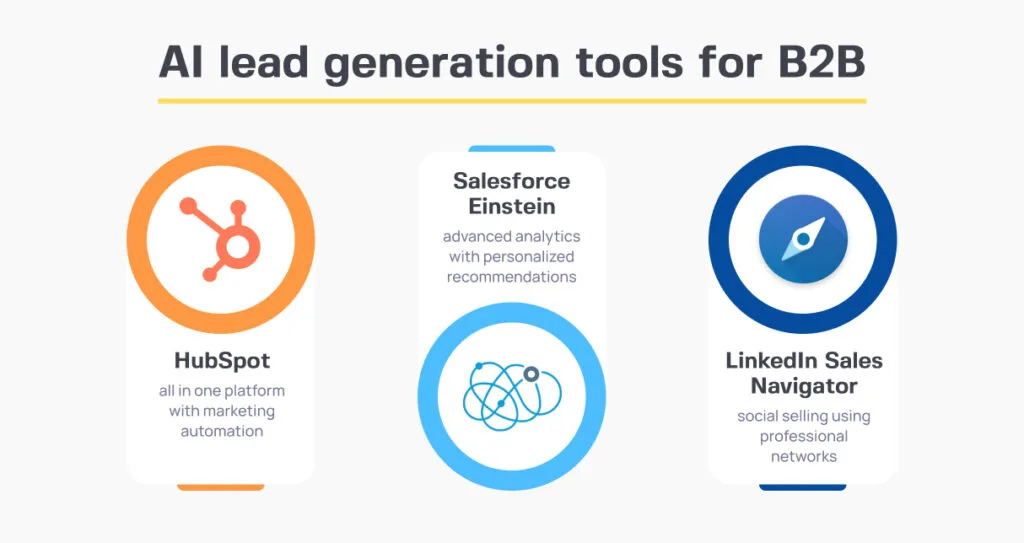How Growth Systems For B2B boosts productivity by automating repetitive tasks
Unlock Efficiency and Growth With AI Automation for B2B Firms
AI automation is changing the landscape for B2B firms. It streamlines procedures and decreases reliance on human intervention. This shift allows services to make quicker, data-driven decisions. As organizations explore which processes to automate, they have to also take into consideration the right tools to carry out. However, obstacles remain in taking on AI modern technology. Business Process Automation. The ramifications of these adjustments could form the future of numerous firms in ways yet to be totally recognized
Recognizing AI Automation in the B2B Context
As services significantly look for efficiency, recognizing AI automation in the B2B context ends up being essential. AI automation involves using innovative innovations to improve operations, minimize human intervention, and improve decision-making procedures. In the B2B landscape, this can show up in various forms, such as automating customer support interactions, handling supply chain logistics, or enhancing marketing projects. Firms can take advantage of AI to assess enormous datasets quickly, allowing them to identify trends and understandings that inform strategic options. AI systems can incorporate flawlessly with existing technologies, providing a natural system for managing business features. This understanding lays the foundation for companies to discover just how AI can change their procedures, improve performance, and eventually foster lasting growth in an affordable market.
Secret Advantages of Executing AI Automation

Determining Procedures Suitable for Automation

Selecting the Right AI Tools for Your Organization
When B2B business take into consideration automating their processes, choosing the best AI devices ends up being crucial for attaining wanted results. Business ought to start by examining their one-of-a-kind requirements and goals, making certain alignment with organization objectives (Minarik AI). Examining the scalability, assimilation, and adaptability capabilities of potential tools is crucial, as these variables establish long-term efficiency. Organizations must also think about user-friendliness and the degree of support given by vendors, as these elements can affect successful execution. Additionally, evaluating customer reviews and case research studies can supply understandings into just how particular AI solutions perform in real-world scenarios. By meticulously picking AI tools that fit their functional needs, B2B companies can improve effectiveness and drive development while lessening prospective disturbances
Getting Over Difficulties in AI Fostering
B2B firms typically run into considerable challenges in embracing AI technologies, especially concerns associated with information quality and resistance to alter monitoring. Poor information quality can prevent the performance of AI systems, while worker unwillingness to welcome brand-new processes can stall execution efforts - AI Automation For B2B. Addressing these challenges is essential for successful AI integration and optimizing its prospective benefits
Information High Quality Issues
Ensuring high information high quality is necessary for the effective adoption of AI innovations in business-to-business environments. Unreliable, insufficient, or outdated information can significantly prevent AI initiatives, causing wrong insights and inadequate decision-making. Business typically face difficulties such as information silos, variances across different resources, and a lack of standardized data formats. To get over these problems, organizations should purchase data cleansing, integration, and administration processes. Executing robust data monitoring methods assures that the info fed into AI systems is trustworthy and pertinent. Furthermore, fostering a culture of data top quality recognition among staff members can boost data accuracy gradually. By addressing information quality concerns, B2B firms can release the complete possibility of AI automation, driving efficiency and development.
Change Monitoring Resistance

Determining the Effect of AI Automation
Measuring the effect of AI automation in B2B firms calls for a clear understanding of crucial efficiency signs (KPIs) that line up with service objectives. Effective information analysis techniques are crucial for interpreting the outcomes, while durable ROI evaluation approaches assist figure out the economic benefits of automation initiatives. With each other, these elements provide a comprehensive framework for assessing AI's payments to organizational success.
Key Performance Indicators
Secret efficiency signs (KPIs) work as essential devices for B2B companies to analyze the effectiveness of AI automation campaigns. By developing clear metrics, companies can measure renovations in functional performance, price reduction, and income development straight attributable to automation. Typical KPIs include cycle time decrease, error rates, customer fulfillment scores, and worker performance degrees. These signs give insights right into how AI systems are maximizing procedures and boosting total efficiency. Furthermore, tracking KPIs makes it possible for business to identify areas for additional enhancement and to straighten AI automation initiatives with tactical business purposes. Ultimately, a distinct structure of KPIs guarantees that B2B companies can quantitatively examine the influence of AI automation on their procedures and drive constant growth.
Information Analysis Methods
Reliable data evaluation methods play a vital function in assessing the impact of AI automation within B2B business. By utilizing analytical techniques, organizations can determine fads and patterns in operational data, allowing them to examine the efficiency acquires achieved via automation. Methods such as regression analysis and time series projecting supply understandings right into just how AI-driven processes influence efficiency and decision-making. Additionally, information visualization tools can properly interact findings to stakeholders, helping with informed strategic choices. Artificial intelligence algorithms can better enhance evaluation by forecasting future end results based on historical information, supplying workable understandings. Ultimately, these methods make it possible for B2B business to gauge success and optimize their AI automation campaigns, ensuring placement with business goals and enhancing general efficiency.
ROI Evaluation Methods
Examining the return on financial investment (ROI) of AI automation is necessary for B2B firms looking for to understand the economic implications of their technological initiatives. Firms can use different ROI assessment techniques to determine the performance of AI implementations - Growth Systems For B2B. One effective strategy includes calculating price savings by comparing functional costs prior to and after automation (B2B Growth Consulting). Furthermore, determining efficiency enhancements through essential performance indications (KPIs) aids evaluate the benefits of AI. Client contentment metrics can additionally provide understandings into the influence of automation on solution high quality. To assure an extensive assessment, firms ought to think about both direct intangible benefits and financial returns, such as boosted decision-making capacities and affordable benefit. This diverse assessment makes it possible for B2B business to make informed decisions concerning future investments in AI technology
Future Fads in AI Automation for B2B Companies
What advancements lie ahead for AI automation in B2B business? Arising patterns show a considerable change in the direction of boosted data analytics capabilities, allowing organizations to make more educated choices. Predictive analytics will end up being progressively important, permitting companies to prepare for market changes and client demands. Additionally, the assimilation of AI with Net of Points (IoT) innovation is expected to enhance operations by offering real-time insights and automation of procedures. Firms will certainly additionally focus on boosting consumer experiences via personalized advertising and marketing driven by AI algorithms. Improvements in all-natural language processing will assist in much better communication in between businesses and customers. As these trends develop, B2B firms need to adapt to leverage AI automation properly, guaranteeing continual growth and affordable advantage.
Frequently Asked Concerns
What Industries Benefit one of the most From AI Automation in B2B?
Manufacturing, finance, medical care, and logistics sectors profit one of the most from AI automation in B2B. These sectors leverage AI to maximize procedures, boost decision-making, and improve total operational effectiveness, driving significant growth and technology.
How Does AI Automation Influence Staff Member Responsibilities and Responsibilities?
AI automation improves staff member roles and duties by streamlining repeated tasks, making it possible for workers to concentrate on calculated campaigns. This shift promotes skill development, improves productivity, and encourages collaboration, eventually driving business development and advancement.
What Are Common Misconceptions Concerning AI Automation in B2B?
Typical misconceptions about AI automation in B2B include fears of job loss, ideas that AI can completely change human judgment, and underestimating the relevance of cooperation between AI systems and employees for ideal results.
How Can Organizations Ensure Data Privacy With AI Automation?
Businesses can ensure data personal privacy with AI automation by executing robust security methods, adhering to regulatory compliance, carrying out routine audits, and training employees on information handling techniques to alleviate risks and shield sensitive info.
What Are the Expenses Linked With Executing AI Automation?
The costs related to executing AI automation consist of software application purchase, facilities upgrades, training employees, continuous maintenance, and potential downtime during integration. Additionally, business may incur expenses associated with information safety and security and conformity pop over here measures.
Gauging the effect of AI automation in B2B business requires a clear understanding of crucial performance indications (KPIs) that line up with company goals. Secret performance signs (KPIs) offer as necessary devices for B2B firms to analyze the efficiency of AI automation efforts. Effective data analysis strategies play an important duty in assessing the influence of AI automation within B2B business. Examining the return on financial investment (ROI) of AI automation is essential for B2B companies looking for to recognize the financial effects of their technological campaigns. What innovations exist ahead for AI automation in B2B business?